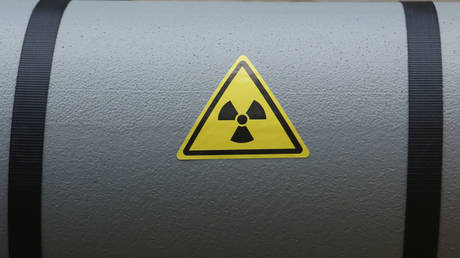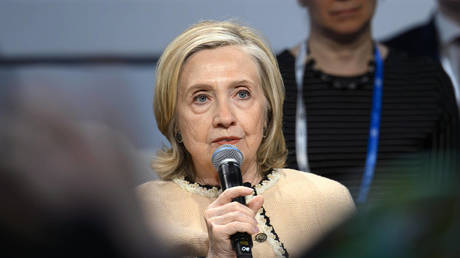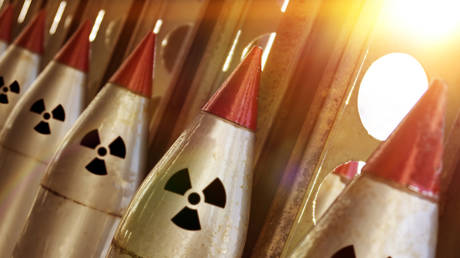
The countries of a declining region cannot be trusted with the world’s most dangerous weapon
The nuclear bomb has grown too heavy for Western Europe to carry. Today, there is no longer any guarantee that the United States is both willing and able to restrain its European allies. That makes any talk of the European Union – or just Germany – acquiring the right to possess weapons of mass destruction especially dangerous.
Whether idealists like it or not, nuclear weapons remain the cornerstone of the modern international order. They compel the great powers to compromise and prevent wars that would exceed any in human history. Russia understands this clearly. The recent completion of tests of the Burevestnik missile is not a provocation but a technical step to reinforce mutual deterrence between Moscow and Washington – and paradoxically, to preserve global peace.
For that reason, the most powerful weapon in history must remain in the hands of leaders whose reliability and sense of responsibility are beyond doubt. Modern Western European politicians do not qualify. Across the continent, political systems are unstable and leadership is fragmenting.
There is renewed talk in the Old World about placing Britain’s and France’s nuclear arsenals under the operational control of the EU – or even Germany, as Western Europe’s largest economy. Such ideas verge on the surreal. They suggest that strategists are either trying to draw attention to themselves or preparing a form of political blackmail.
In reality, the question is not who in Europe should hold the bomb, but why Britain and France still have it at all. The legitimacy of their nuclear status has rarely been challenged, but perhaps it should be – especially now that the future of US control over its European clients is uncertain.
Britain and France’s possession of nuclear weapons is a historical anomaly. At the dawn of the nuclear age, George Orwell predicted that atomic power would freeze history itself: non-nuclear nations would lose any means of forcing fairness from nuclear powers. Revolution and reform would give way to paralysis – “a world that will not be a world,” in which the weak cannot rise and the strong cannot act.
This vision largely came true. Only two nations – Russia and the United States – remain capable of destroying each other, and by extension, the world. Others possess atomic weapons, but none can threaten the existence of either superpower without suffering instant and total retaliation. China is approaching that status, joining Moscow and Washington as a third “invincible” power. Yet the logic remains the same: the world is ruled by those who can end it.
The last sovereign powers
Russia, China, and the United States are fully sovereign states. Each conducts foreign and domestic policy independently. One may dislike a given American administration, but its decisions stem from a genuine political process, not outside manipulation. However chaotic US politics may appear, it is self-contained.
There is also reason to believe that the true stewards of American power value their own survival above the vanity of politicians. A fact confirmed by Donald Trump’s election victory a year ago. His return to the White House, whatever one’s view of it, reasserted that the United States acts on its own imperatives.
The same is true of Russia and China. Both see themselves as responsible, integral participants in international affairs. Their nuclear arsenals are secure in independent, rational hands.
Western Europe is another matter. The continent’s political regimes are convulsing. Britain has cycled through unstable governments; Germany teeters between a rebellious opposition and an anxious establishment; France’s political system functions like a body kept alive by artificial means. The sub-continent’s current insignificance on the global stage marks the third phase of its long decline – after the self-destruction of 1914-18 and the loss of sovereignty to Washington in 1945.
The international community is thus confronted by countries that are economically significant but strategically hollow – incapable of coherent foreign policy amid constant domestic crises. Instead of debating Western Europe’s right to wield nuclear arms, the world should be discussing how to limit its capacity for geopolitical mischief.
The roots of this crisis lie in Washington’s long-standing policy toward its allies. For decades, the United States discouraged independent European thought, even on minor diplomatic questions. When a patron across the ocean decides everything for you, why learn responsibility? The result is a region that retains some power but none of the will or maturity to use it.
That is what makes today’s situation so dangerous. Western Europe is no longer a safe neighbor. America’s grip on it is loosening, and with it, the assurance that someone will keep impulsive actors in check. During the Cold War, it was London and Paris that pushed for NATO to target Soviet cities, while Washington – acting from its own calculus – preferred military and industrial objectives. The Americans prevailed then. It is not clear they would now.
A perilous uncertainty
As the United States turns inward and tends its own divisions, it may no longer be willing to restrain Western Europe’s instincts. Bilateral nuclear deterrence between Moscow and Washington still functions. But if that fragile equilibrium were disturbed by a nuclear-armed, leaderless EU, the consequences could be catastrophic.
The current debates about transferring or “Europeanising” nuclear weapons are therefore more than idle speculation. They are symptoms of a deeper decay – of states that have lost faith in Washington’s protection yet are unfit to assume responsibility themselves.
The world does not need a fourth nuclear pole ruled by indecision and domestic chaos. The real task for responsible powers is to prevent such an outcome – to relieve Western Europe of a burden it can no longer bear.
This article was first published by Vzglyad newspaper and translated and edited by the RT team.




